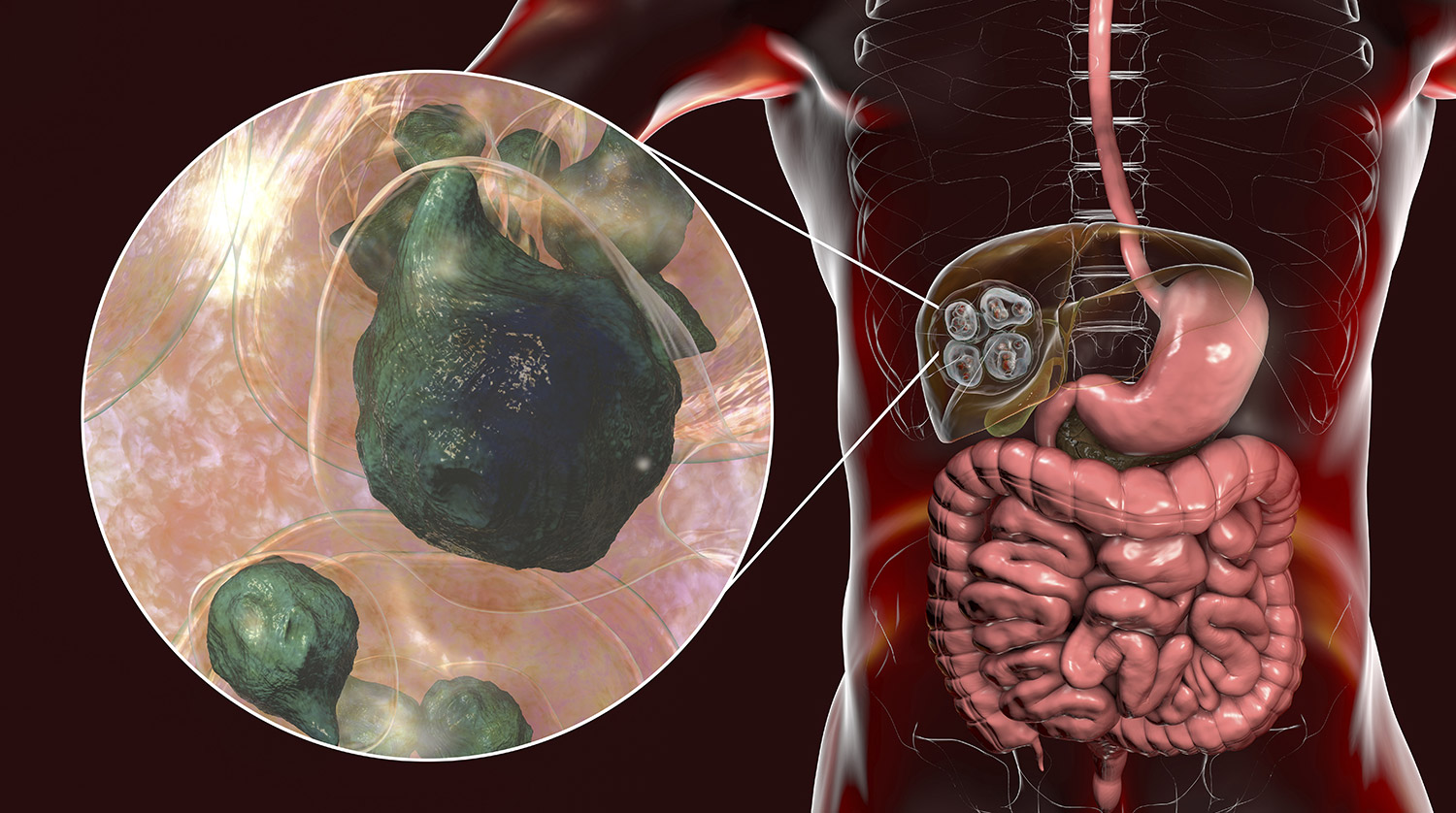Usually tapeworm infections are treated successfully; they do not lead to any complications. The rare complications of tapeworm infection are discussed below:
Intestinal blockage: Sometimes, the tapeworms in the intestine grow large in size and block some parts of the digestive tract, such as the bile ducts (that carry bile from gallbladder and liver to intestine), the pancreatic duct (that carry digestive fluids from pancreas to intestine), or the appendix that may lead to infection (appendicitis).

Disruption of organ function: Certain tapeworms can penetrate through the intestinal wall, migrate to other organs and form cysts. After some time, these cysts can enlarge in size and affect the function of that organ or decrease its blood supply. The cysts may sometimes rupture and release more larvae that can travel to other organs and form more cysts. A ruptured cyst can cause allergic reaction with swelling, itching, hives, difficulty in breathing. In severe infections, surgery or organ transplantation may be needed.
Impairment of the central nervous system: The larvae of certain tapeworm can migrate to the brain or other parts of the central nervous system. This is a dangerous complication of the tapeworm infection. Such cases can result in visual impairment, seizures, chronic headaches, meningitis, dementia or hydrocephalous. Severe cases of infection can be life threatening and result in death.